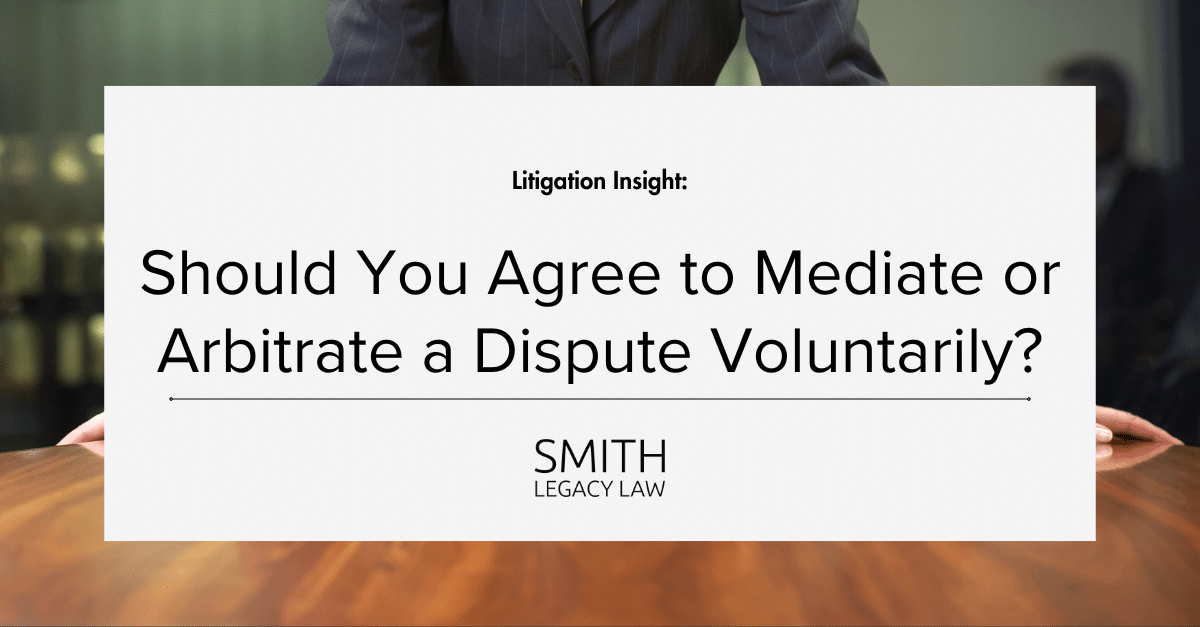Litigation can be time-consuming and expensive which is why courts encourage parties to try alternative dispute resolution (ADR) methods such as mediation and arbitration. In mediation, the parties work with a neutral third-party mediator who does not determine who wins the case but does help facilitate discussion and settlement between the parties. In arbitration, the neutral third-party arbitrator does render a decision that is typically binding on the parties. Both processes offer significant advantages over litigation in many cases as discussed below. However, an experienced attorney can assist you in evaluating whether you should voluntarily agree to mediate or arbitrate based on your particular circumstances.
Is Mediation or Arbitration Faster Than Litigating in Court?
Mediation and arbitration matters tend to be resolved quicker and more efficiently than traditional court cases. Unlike in a court proceeding, you will be selecting a mediator or arbitrator who has a much lighter caseload than most judges and has time to hear your case. As a result, the whole process moves faster than litigation in most situations.
How Much Control Do You Have Over the Mediation or Arbitration?
A significant advantage of mediation and arbitration is that you have much more control over the process from start to finish than you would have in litigation. While many organizations that handle mediation and arbitration like AAA, FINRA, JAMS, and ICC have well-defined rules and procedures, there are fewer restrictions and rigid timelines compared to litigation. You also can choose the mediator or arbitrator and determine the scope of their duties.
What Issues Should Go to Mediation or Arbitration?
You have the ability to specify the issues that you want to be handled in mediation or arbitration. Further, within the same case, you may designate certain claims to be heard in a court and others to be heard by a mediator/arbitrator.
Can You Choose Who Will Hear the Mediation or Arbitration?
Typically, when you litigate a matter, you have virtually no control over which judge will hear your case. This could mean that a judge with little to no experience in the areas relevant to your case could be assigned to your matter.
However, in mediation/arbitration, you have much more power to determine who will hear your case. You and your opponent can come up with a list of potential mediators/arbitrators who are well-versed in your industry, type of dispute, or specific area of law applicable to your claims. You can even agree on the specific person who will hear the matter. This would never happen in court.
How Do You Choose Whether to Litigate, Mediate or Arbitrate?
Mediation and arbitration have many benefits, so before commencing an action in court, speak with an attorney to determine which option is right for your case.
Our attorneys are skilled in representing clients in court and ADR proceedings. Contact us for a consultation.
